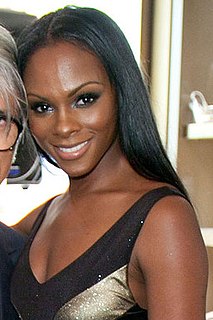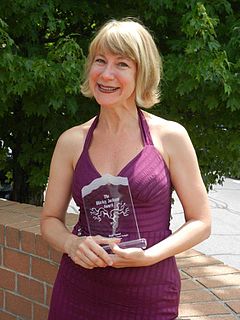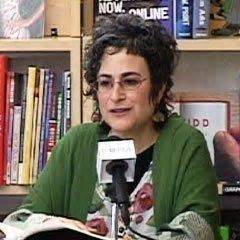A Quote by Thomas Jefferson
Truth will do well enough if left to shift for herself. She seldom has received much aid from the power of great men to whom she is rarely known and seldom welcome. She has no need of force to procure entrance into the minds of men.
Related Quotes
If women had power, what would men be but women who can't bear children? And what would women be but men who can?" "Hah!" went Tenar; and presently, with some cunning, she said, "Haven't there been queens? Weren't they women of power?" "A queen's only a she-king," said Ged. She snorted. "I mean, men give her power. They let her use their power. But it isn't hers, is it? It isn't because she's a woman that she's powerful, but despite it.
Charity never lacks what is her own, all that she needs for her own security. Not alone does she have it, she abounds with it. She wants this abundance for herself that she may share it with all; and she reserves enough for herself so that she disappoints nobody. For charity is perfect only when full.
She stared at herself in the mirror. Her eyes were dark, almost black, filled with pain. She'd let someone do that to her. She'd known all along she felt things too deeply. She became attached. She didn't want a lover who could walk away from her, because she could never do that - love someone completely and survive intact if her left her.
She imagined herself both queen and slave, dominatrix and victim. In her imagination she was making love with men of all skin colors--white, black, yellow--with homosexuals and beggars. She was anyone's, and anyone could do anything to her. She had one, two, three orgasms, one after another. She imagined everything she had never imagined before, and she gave herself to all that was most base and most pure.
Courage looks you straight in the eye. She is not impressed with power trippers, and she knows first aid. Courage is not afraid to weep, and she is not afraid to pray, even when she is not sure who she is praying to. When she walks it is clear she has made the journey from loneliness to solitude. The people who told me she was stern were not lying. they just forgot to mention she was kind.
She emptied herself of Fabio and of herself, of all the useless efforts she had made to get where she was and find nothing there. With detached curiosity she observed the rebirth of her weaknesses, her obsessions. This time she would let them decide, since she hadn't been able to do anything anyway. Against certain parts of yourself you remain powerless, she said to herself, as she regressed pleasurably to the time when she was a girl.
Anais Nin shows an occasional grace in writing, but her work is quite foreign to me, precisely because she wants so much to be feminine and not feminist. And then she is so gaga before so many men. She talks about men I know in France, men who were less than nothing, and she considers them kings, extraordinary people.
She'd assumed she'd be married and have kids by this age, that she would be grooming her own daughter for this, as her friends were doing. She wanted it so much she would dream about it sometimes, and then she would wake up with the skin at her wrists and neck red from the scratchy lace of the wedding gown she'd dreamed of wearing. But she'd never felt anything for the men she'd dated, nothing beyond her own desperation. And her desire to marry wasn't strong enough, would never be strong enough, to allow her to marry a man she didn't love.


































